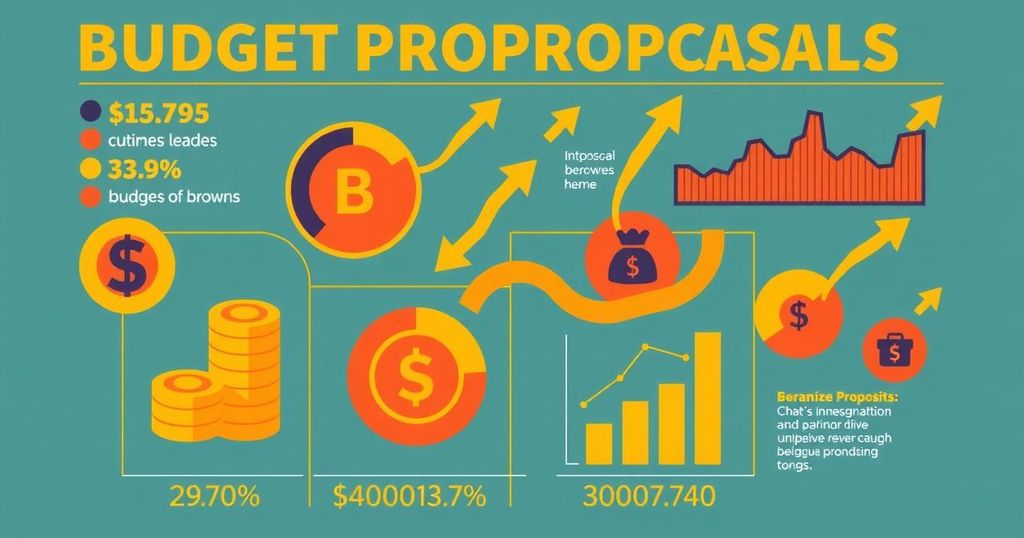The Tanzanian government has proposed a Sh57.04 trillion budget for 2025/26, focusing on existing projects while addressing concerns about increasing loan dependence. Key priorities include managing debts, salaries, and preparations for the General Election and AFCON. Stakeholders voice the need for careful planning to ensure ongoing project funding and stability in domestic revenue.
The Tanzanian government has recently unveiled its Sh57.04 trillion budget framework for the 2025/26 financial year, garnering praise from stakeholders. However, economists have raised concerns regarding the country’s increasing dependency on loans for funding significant expenditures, including the General Election, debt repayments, and preparations for the Africa Cup of Nations (AFCON). These financial obligations present risks that may hinder the allocation of funds necessary for development projects.
In response to rising borrowing concerns, the government reassured stakeholders that new projects would not be initiated in the upcoming fiscal year. Instead, the focus will be on completing existing initiatives as part of a measured approach to financial discipline. During the budget presentation on March 11, Finance Minister Dr. Mwigulu Nchemba outlined six key priorities including settling government debts, paying salaries, preparing for the elections and AFCON, strengthening democracy, and maintaining peace and stability.
Dr. Nchemba stated that 69.7 percent of the budget, amounting to Sh40.09 trillion, would derive from domestic sources, while 30.3 percent would come from external funding. Economist Zacharia Jackson expressed that while the budget frame itself is acceptable, there exists an increased risk of government borrowing. He emphasized the critical need for substantial funding in key priority areas and cautioned against potential depletion of funds due to inadequate planning.
Financial analyst Sablina Kaijage voiced similar apprehensions, particularly noting that election-related spending could affect ongoing projects. She pointed out, “Allocating sufficient funds for elections is challenging, as unforeseen expenses often arise, leading the government to spend more than initially planned. We must focus on maximizing domestic revenue rather than over-relying on external financing.”
The unpredictability of external aid during election cycles further underscores the need for Tanzania to become self-sufficient in funding essential activities, according to Ms. Kaijage. Additionally, vendor Aidan Chedego from Saba Saba Market highlighted the importance of timely salary payments for civil servants. He stated, “Peace and stability are important, but for us traders, business is the top priority. If salaries are paid regularly, people will continue shopping, which keeps the economy moving.” With discussions on budget priorities ongoing, experts across sectors advocate for financial prudence and optimal resource allocation to address the fiscal challenges ahead.
In summary, while the Tanzanian budget framework has been generally praised, there is a notable concern regarding the reliance on borrowing. Stakeholders emphasize the importance of cautious financial management and resource allocation to ensure that priority projects, particularly the General Election and AFCON, do not derail development financing. By focusing on self-sufficiency and maximizing domestic revenue, the government may navigate its fiscal challenges more effectively.
Original Source: www.thecitizen.co.tz




